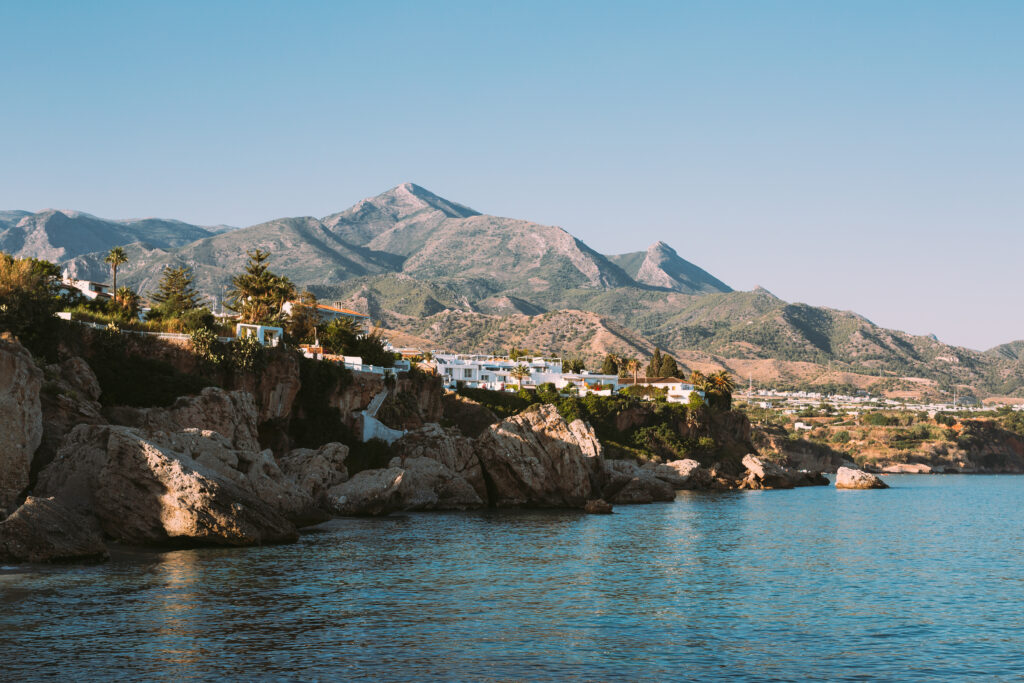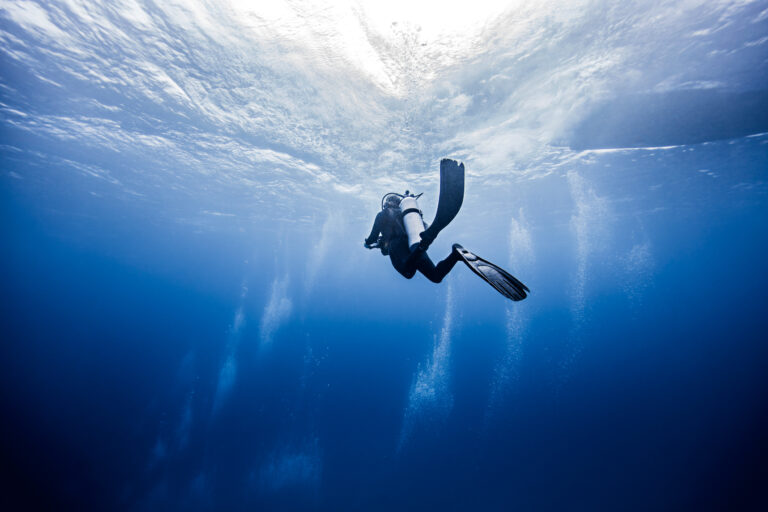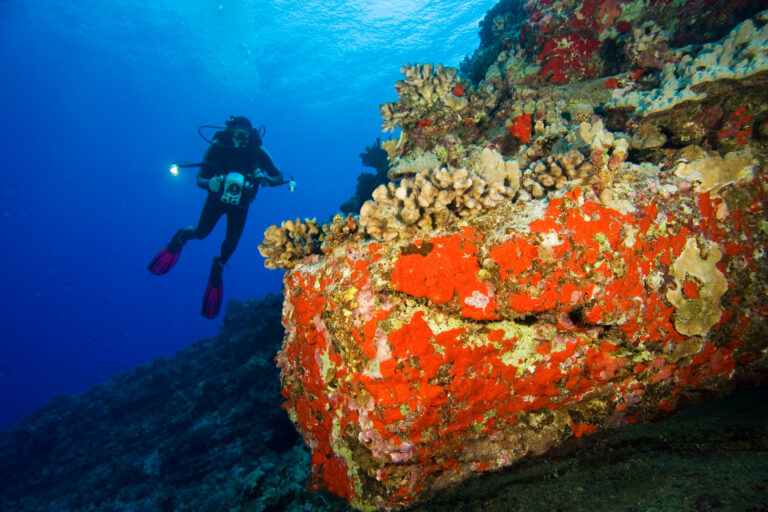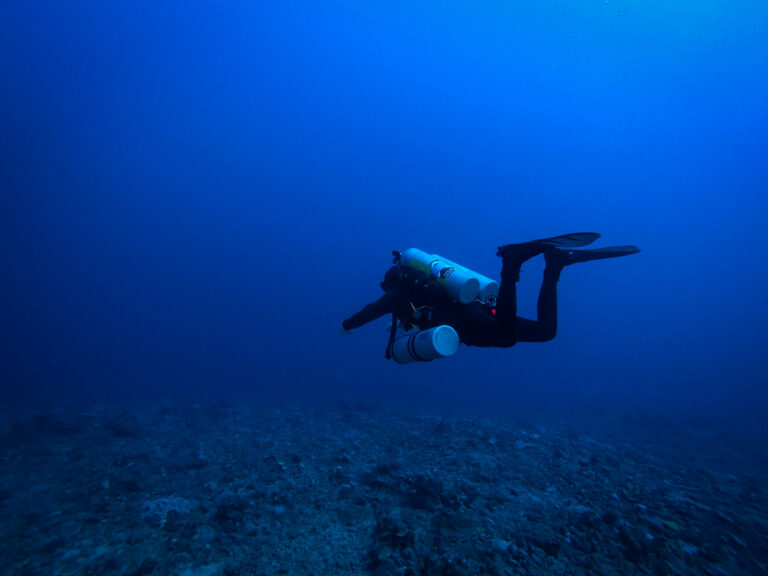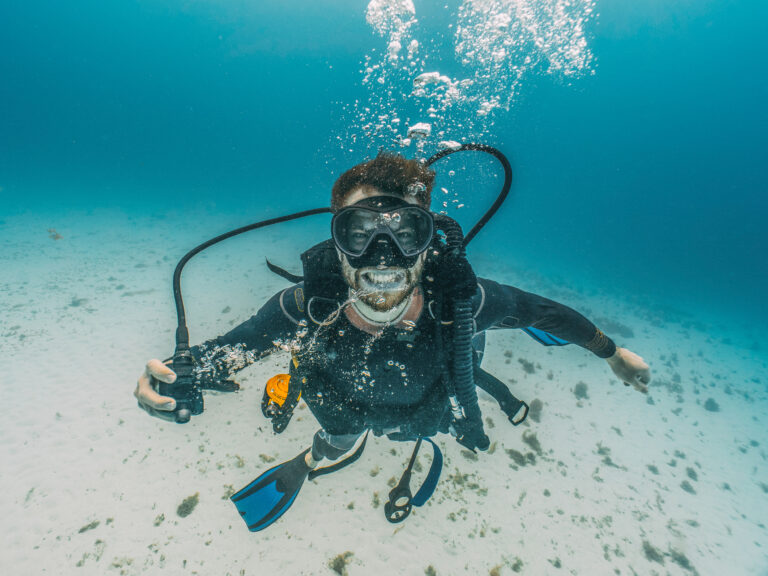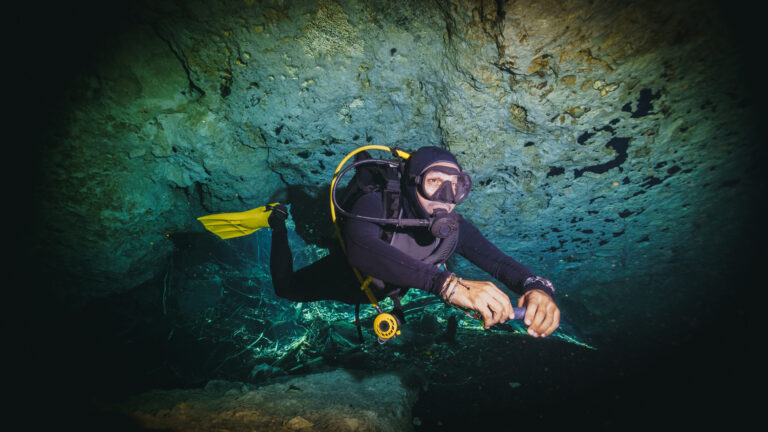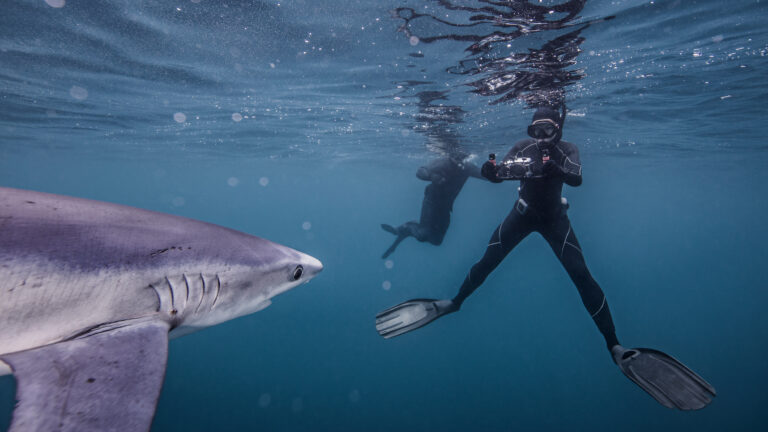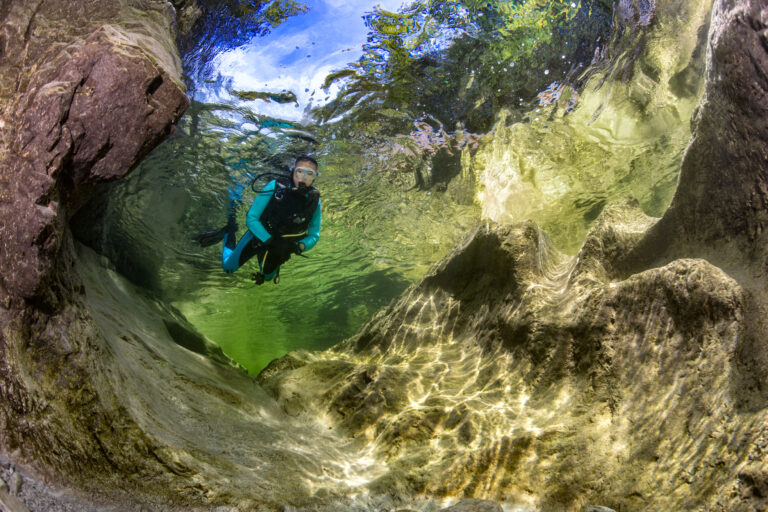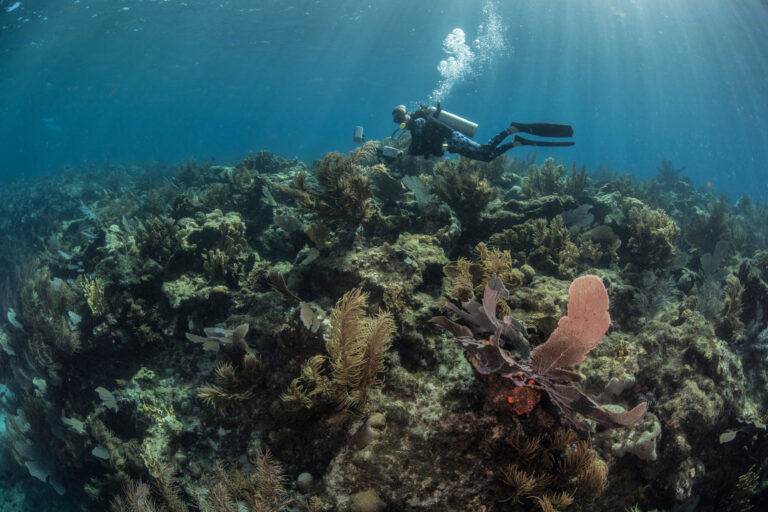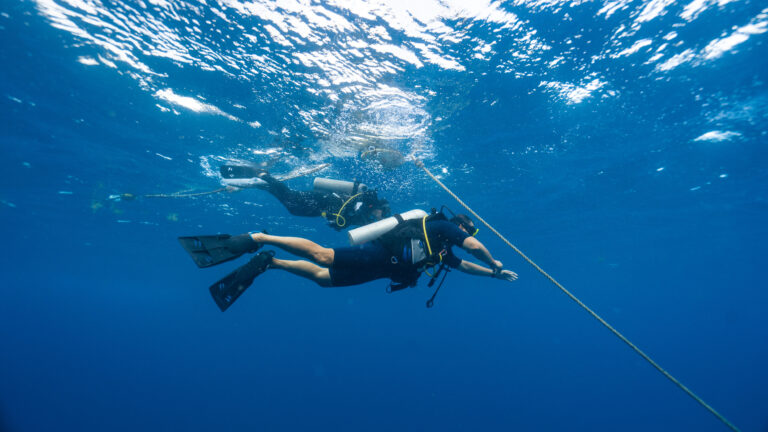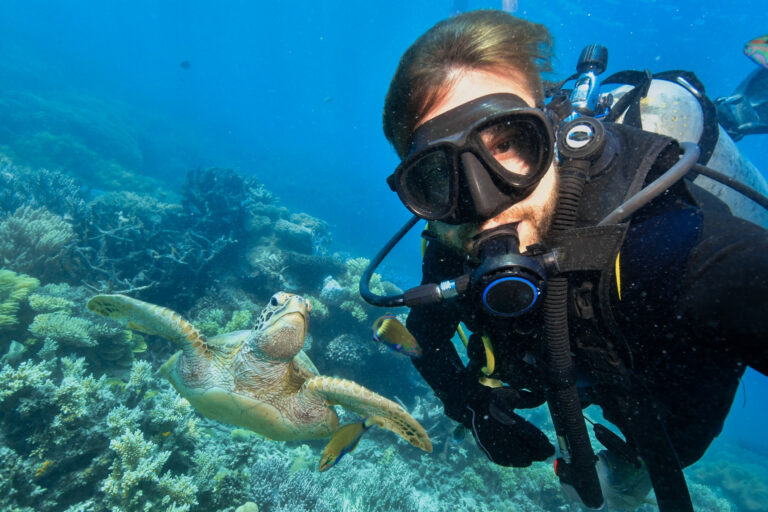SCUBA DIVERS’ TRAVEL GUIDE TO Spain
Spain is a scuba diver’s paradise, with rich and diverse marine life, stunning underwater landscapes, and a long and varied coastline. Whether you are looking for wrecks, caves, reefs, or walls, Spain has something for every level of diver. You can explore the Mediterranean Sea, the Atlantic Ocean, or the Cantabrian Sea, and discover each region’s unique flora and fauna. Spain also offers a wealth of cultural and historical attractions, from ancient castles and cathedrals to modern art and architecture. You can enjoy the vibrant nightlife, the delicious cuisine, and the warm hospitality of the Spanish people. Spain is a destination that will captivate you with its beauty, charm, and diversity.
LOCATION AND GEOGRAPHY
Spain, a European country located on the Iberian Peninsula, is bordered by the Mediterranean Sea to the east and the Atlantic Ocean to the northwest, offering a diverse range of scuba diving experiences. The mainland’s extensive coastline is dotted with numerous dive sites, from the rugged Costa Brava in the northeast, known for its rich marine life and underwater caves, to the sun-soaked Costa del Sol in the south with its warm waters and artificial reefs. The Balearic Islands in the Mediterranean, including Mallorca and Ibiza, are renowned for their clear waters and vibrant sea life, while the Canary Islands, off the coast of North Africa, boast a unique volcanic underwater topography with an abundance of rays, angel sharks, and the occasional whale shark. Each region of Spain’s varied geography presents a unique underwater landscape, making it a versatile destination for divers of all levels.
VISA AND ENTRY REQUIREMENTS
Before embarking on your underwater adventure to Spain’s vibrant marine landscapes, it is essential to ensure that your travel documents are in order. Citizens from the European Union, Switzerland, Norway, Iceland, and Liechtenstein can enter Spain with a valid national ID card or passport. For travelers from the United States, Canada, Australia, New Zealand, and Japan, among other countries, no visa is required for stays of up to 90 days within a 180-day period. However, a passport valid for at least three months beyond the planned departure date from the Schengen Area is mandatory. Visitors from other countries may need to apply for a Schengen visa prior to arrival. It is advisable to check the latest visa requirements with the nearest Spanish consulate or embassy well in advance, as regulations can change. Additionally, ensure that you have proof of return or onward travel, and some travelers may be asked to show evidence of sufficient funds and accommodation arrangements upon entry.
GETTING TO Spain
Getting to Spain for an unforgettable scuba diving adventure is a straightforward journey for travelers from around the globe. The country is well-connected by air, with major international airports such as Madrid-Barajas Adolfo Suárez (MAD), Barcelona-El Prat (BCN), and Palma de Mallorca (PMI) serving as primary gateways. These airports offer a wide range of flights from various airlines, including direct connections from the Americas, Asia, and other European countries. For those within Europe, high-speed trains and well-maintained highways offer alternative routes, especially for those looking to bring their own gear. Once in Spain, domestic flights, trains, and car rentals provide easy access to coastal regions renowned for their diving spots, such as the Canary Islands, the Balearic Islands, and the Costa Brava. With its diverse marine life and clear waters, Spain promises a scuba diving experience that is both accessible and memorable.
BEST TIME TO DIVE
The best time to scuba dive in Spain largely depends on the specific region you plan to visit, given the country’s diverse climates and water conditions. For the Mediterranean coast, including the Balearic Islands, the ideal diving season stretches from late May to early November, when the water temperatures are warmer, ranging from 20°C to 26°C, and the visibility is at its peak, often exceeding 30 meters. The Canary Islands, on the other hand, offer year-round diving opportunities due to their subtropical climate; however, the most favorable period is from April to October, when the waters are calmer and the visibility is superb. Keep in mind that August can be quite busy with tourists, so booking in advance is recommended. For those interested in experiencing a unique underwater environment, the colder months bring the chance to dive with the elusive, migratory moonfish (Mola mola) off the Costa Brava, although thicker wetsuits or drysuits will be necessary due to cooler water temperatures. Regardless of the time of year, Spain’s diverse underwater landscapes, from volcanic rock formations in the Canaries to sunken ships in the Mediterranean, ensure a memorable diving experience.
ACCOMMODATION OPTIONS
Spain offers a diverse range of accommodation options to suit the needs of scuba divers, from the sun-drenched Canary Islands to the rich waters of the Mediterranean coast. Whether you’re looking for a luxurious resort with on-site dive centers in the Balearic Islands or a cozy, family-run guesthouse in Costa Brava, Spain caters to every preference and budget. Many coastal accommodations are geared specifically towards divers, providing amenities such as gear storage, rinse tanks, and easy access to dive boat charters. For those who prefer a more immersive experience, liveaboard trips can be found, particularly around the more remote dive sites, offering the convenience of sleeping above the waves and waking up right at the dive spot. Budget-conscious divers might opt for hostels or camping sites that are common in popular dive areas like the marine reserve around the Medes Islands. Regardless of where you stay, you’ll find that Spanish hospitality often includes helpful tips on the best local dive sites and the tastiest post-dive tapas.
DIVE OPERATORS AND DIVE SHOPS
Spain’s vibrant underwater realms are accessible through a plethora of dive operators and shops, catering to both neophyte explorers and seasoned divers. From the sun-drenched Costa Brava to the volcanic landscapes of the Canary Islands, each dive shop offers a unique gateway to Spain’s marine treasures. These establishments are staffed by multilingual professionals who prioritize safety and environmental stewardship, ensuring that your subaquatic adventure is both enjoyable and responsible. They provide a full suite of services, including PADI and SSI certification courses, gear rental, and guided dive excursions to enthralling sites like the Mediterranean’s submerged caves or the Atlantic’s shipwrecks. Many operators also arrange dive packages that include accommodation and transportation, simplifying logistics so you can immerse yourself in the experience. Whether you’re looking to encounter the rich biodiversity of the Balearic Islands or the underwater sculptures off Lanzarote, Spain’s dive shops are your trusted partners in unlocking the mysteries of its deep blue seas.
TRANSPORTATION WITHIN Spain
Spain offers a variety of transportation options to cater to scuba divers looking to explore its underwater treasures, ranging from the Costa Brava in the northeast to the Canary Islands off the African coast. The country’s extensive network of domestic flights connects major cities and popular islands, making it convenient to reach coastal destinations quickly. For a more scenic route, high-speed trains (AVE) and regional services link major inland cities to coastal areas, while comfortable buses offer a cost-effective alternative, often with direct routes to prominent dive spots. Car rentals are widely available and provide the flexibility to visit remote dive sites at your own pace. In coastal regions, local boat charters are common, allowing divers to access off-shore dive sites and marine reserves not reachable from the shore. Always ensure that your transportation choice can accommodate your diving gear, and consider arranging gear rentals at your destination to ease your travel.
CURRENCY AND PAYMENT METHODS
In Spain, the official currency is the Euro (€), which is the common currency used throughout the majority of the European Union. When planning your scuba diving adventure, it’s important to note that while credit and debit cards are widely accepted at dive shops, hotels, and restaurants in major cities and tourist areas, it’s advisable to carry some cash for smaller purchases, such as at local markets or in remote locations where electronic payments may not be as readily accepted. ATMs are readily available, but be aware of potential fees for international transactions. It’s also a good idea to notify your bank of your travel plans to avoid any issues with card usage abroad. For the best exchange rates, consider exchanging your currency at official banks or using ATMs rather than exchange services at airports or tourist spots. Some dive operators may also accept payment in advance through online transactions, which can be convenient and may offer additional record-keeping security. Always ensure you have a clear understanding of the payment methods accepted by your chosen dive provider to avoid any underwater surprises.
LANGUAGE AND COMMUNICATION
When embarking on a scuba diving adventure in Spain, it’s beneficial to have a basic grasp of Spanish, as it is the official language and widely spoken throughout the country. While many dive operators, especially in popular tourist areas, may have staff who speak English and other European languages, learning some Spanish diving terminology and common phrases can greatly enhance your experience. It allows for smoother interactions with local divers, boat crews, and enhances safety by ensuring clear communication during dive briefings and in case of emergencies. Additionally, engaging with the local community in their native tongue can open doors to more authentic cultural exchanges and may lead to insider tips on the best dive spots. It’s also courteous to familiarize yourself with local customs and non-verbal communication cues to avoid misunderstandings. Carrying a waterproof dive slate with pre-written key phrases or a translation app on your phone can be helpful tools for those less confident in their Spanish language skills.
LOCAL CULTURE AND ATTRACTIONS
Spain’s vibrant local culture and attractions offer a delightful complement to its underwater treasures, making it an ideal destination for scuba divers seeking a rich surface interval. After exploring the marine wonders of the Mediterranean or the Atlantic, divers can immerse themselves in the country’s effervescent fiestas, savor the flavors of tapas and paella, and sip on local wines or sangria. The Iberian Peninsula is steeped in history, with landmarks such as the Alhambra in Granada, the Sagrada Família in Barcelona, and the Prado Museum in Madrid offering glimpses into Spain’s artistic and architectural heritage. Flamenco music and dance embody the passionate spirit of the nation, while the laid-back coastal towns provide a tranquil escape. From the cobblestone streets of ancient cities to the sun-drenched islands of the Balearics and Canaries, Spain’s cultural mosaic is as diverse and captivating as its marine life, ensuring that every visit both underwater and above is filled with discovery and enchantment.
CULTURAL ETIQUETTE AND TIPS
When scuba diving in Spain, it is essential to embrace the local customs and cultural nuances to ensure a respectful and enriching experience. Spanish culture places a high value on courtesy and personal interactions, so a friendly demeanor and polite greetings are appreciated. It’s common to exchange pleasantries and small talk before discussing diving plans with local dive operators. Be mindful of the siesta, a traditional midday break when many businesses close, typically between 2 pm and 5 pm. This may affect shop hours and dive schedules, so plan accordingly. When diving, respect for the environment is paramount; ensure you adhere to all marine conservation rules and avoid disturbing the delicate ecosystems. Tipping is not as customary in Spain as it is in other countries, but it is welcomed for exceptional service. A tip of around 5-10% of the service cost is considered generous. Lastly, take the time to learn a few basic Spanish phrases; even a simple “gracias” (thank you) or “por favor” (please) can go a long way in showing respect for the local culture and enhancing your interactions both above and below the water.
LOCAL LAWS AND REGULATIONS RELEVANT TO TOURISTS
When planning a scuba diving trip to Spain, it is essential to acquaint yourself with the local laws and regulations to ensure a safe and lawful experience. Spain requires all divers to be certified by a recognized scuba diving organization and to carry personal diving insurance that covers hyperbaric treatment and medical transportation. Dive centers and schools must be officially registered and provide divers with a control sheet to log dives. Marine protected areas are common along the Spanish coast, and these zones often have strict guidelines to preserve biodiversity, including limitations on the number of divers per day, specific entry points, and sometimes a requirement to dive with an authorized guide. Additionally, the use of dive flags is mandatory to alert boats to the presence of divers below. It is illegal to remove any marine life or artifacts from the underwater environment, and penalties for non-compliance can be severe. Always check the specific regulations for the region you are visiting, as rules can vary between autonomous communities within Spain.
SAFETY TIPS AND EMERGENCY CONTACTS
When diving in the diverse underwater landscapes of Spain, safety should be your paramount concern. Always dive within your certification limits and ensure that your equipment is well-maintained and appropriate for the local conditions. It is crucial to be familiar with the local dive laws and regulations, which can be obtained from regional dive shops or the Spanish Federation of Underwater Activities (Federación Española de Actividades Subacuáticas – FEDAS). Before embarking on a dive, make sure to check the weather forecast and sea conditions, and always dive with a buddy. In case of an emergency, it is vital to know the contact details of the nearest hyperbaric chamber, which can be provided by local dive centers. Additionally, keep the emergency number 112 at hand, which is the universal emergency number for Spain, including the Canary and Balearic Islands. This number can be used to reach medical assistance, the coast guard, or to initiate search and rescue operations. Remember to have comprehensive dive insurance that covers hyperbaric treatment and emergency evacuation, ensuring that you can enjoy Spain’s underwater marvels with peace of mind.
HEALTH AND TRAVEL INSURANCE
When planning a scuba diving trip to Spain, it is crucial to consider your health and travel insurance options carefully. Spain offers a plethora of diving experiences, from exploring the sunken treasures of the Mediterranean to the vibrant marine life of the Canary Islands. However, diving always carries inherent risks, and access to medical care can be costly, especially in the event of decompression sickness or other dive-related injuries. Ensure that your travel insurance policy includes comprehensive coverage for scuba diving activities, specifying the depths to which you are certified to dive. It’s also wise to check if the policy covers hyperbaric treatment and medical evacuation, as these can be expensive and are not always included in standard travel insurance. Additionally, verify that your insurance is accepted at local hospitals and clinics within Spain. For peace of mind, consider investing in a dedicated dive insurance policy from a reputable provider that specializes in dive-related coverage. By securing the right insurance, you can immerse yourself in Spain’s underwater marvels with confidence, knowing that you are well-protected against unforeseen circumstances.

